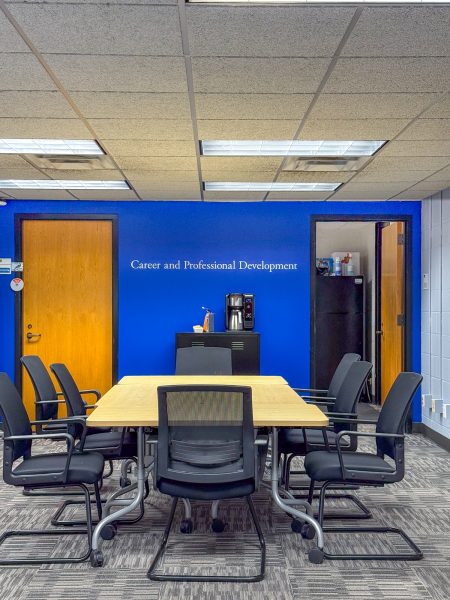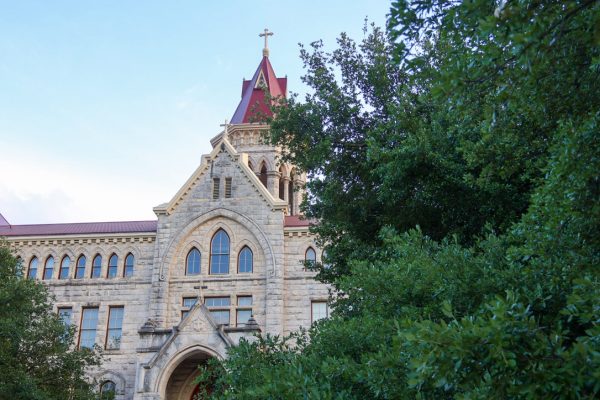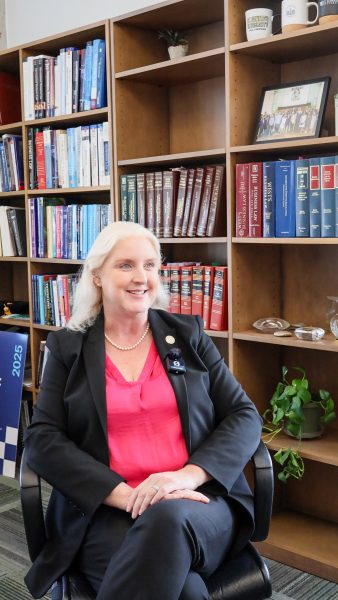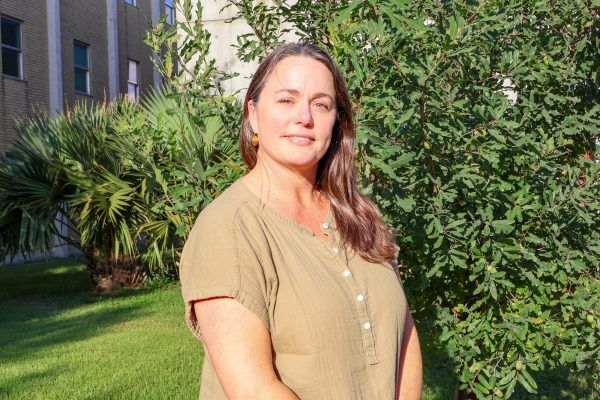Dean becomes key contributor to university’s global initiatives
When Dean of Behavioral and Social Sciences Brenda Vallance was a college freshman, her dad gave her the option to get a car or go to Russia. Vallance chose Russia and has yet to regret it.
“I discovered what it was I wanted to know more about,” Vallance said of her trip.
Vallance continued her undergraduate degree at the University of Texas at Arlington. She studied foreign languages, namely German and Russian. Later, she got her master’s degree in soviet studies at the University of Oklahoma and her doctorate in political science at the University of California, Los Angeles.
Her specialization did not stop her global curiosity. As a Lieutenant Colonel in the United States Air Force, Vallance traveled the world.
“I always knew I wanted to travel. It turned into an opportunity to travel the world,” Vallance said.
The Air Force allowed her to teach, meet and learn from an incredible pool of people, according to Vallance. In 1995, Vallance was an Air Force representative at discussions featuring former President George H.W. Bush, former Soviet President Mikhail Gorbachev, U.K. Prime MinisterMargaret Thatcher and others.
“I could see her power in the one-on-one conversation,” Vallance said of Thatcher.
Of the Gorbachevs, Vallance said that Mrs. Gorbachev insisted on taking a picture.
Vallance’s intense interest in global politics and higher education helped her decision to come to St. Edward’s University.
“More involvement in higher education truly showed me what my calling was, which is teaching,” Vallance said.
In August 2005, Vallance began her career at St. Edward’s. Her passion for giving students a global education allowed her to help create the global studies major.
“Dr. Martin was the primary architect of the global initiative,” Vallance said.
St. Edward’s had an international relations program, but international relations is actually a subfield of political science. Global studies differs in that it has a language requirement and the necessity of either interning or studying abroad.
Vallance also helped create the position of study abroad coordinator, which is filled by political science Professor Bill Nichols.
As well as his teaching duties, Nichols helps faculty create goals, learning outcomes and courses for faculty study abroad programs.
Though Vallance has not had the opportunity to lead a study abroad trip, she hopes to in the future. For now, she is busy doing her day-to-day work.
This includes hiring and reviewing faculty, helping with faculty development and helping students with overloads, scheduling and other daily challenges that may arise.
Through all her daily tasks, in the back of Vallance’s mind, there is still much to accomplish.
Namely, she hopes to develop more programs that cater to students’ needs, encourage more faculty-student research and allow more graduate students access to study abroad programs.
Although there is much Vallance hopes to improve, she appreciates all she has.
“I’m really proud of our school,” Vallance said. “I think we’ve really done a lot of exciting things over the last 10 years and it has obviously been primarily driven by the faculty. I think we have a lot of great teachers. I also think we have a very collegial environment that helps faculty grow.”
The faculty is encouraged to be a team that works to provide a quality education, Vallance said. In other words, Vallance is able to inspire more than just the students to take on their world.
Follow Sara for more!






